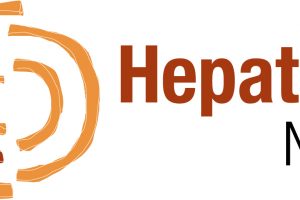Aboriginal and Torres Strait Islander Social Justice Commissioner Mick Gooda has warned of a “worrying” trend back towards income management with the passing of the Healthy Welfare Card through Federal Parliament this week.
“While there’s no doubt that many disadvantaged Aboriginal people would like support, the evidence in relation to income management is mixed to say the least,” Commissioner Gooda said.
“Any possible benefits must be weighed against the sense of disempowerment people report, the stigma they feel and punitive perceptions.
“I have grave concerns about the most recent proposal of the Social Security Legislation Amendment (Debit Card Trial) Bill 2015 which passed the upper house without amendments on Wednesday evening, and its implementation. The Healthy Welfare Card is not exactly identical to income management, but it imposes restrictions on the ways people can spend their money and will almost certainly impact disproportionately on Aboriginal and Torres Strait Islander people.”
He made these comments as part of his Charles Perkins Memorial Oration at the University of Sydney on Thursday 15 October.
“The hardest part of this proposal to accept is that yet again the treatment of our people will be different to mainstream Australia and it is this differentiation that Charlie fought so hard to bring into the open,” Commissioner Gooda said.
Reflecting on the “enormous legacy” of Dr Charles Perkins AO, Commissioner Gooda acknowledged his formative work and the powerful role he played in the 1965 Freedom Rides, but also his work later in life in government and civil society.
“Charlie’s life has been an extraordinary example to many of us, including myself, that while it may appear that politicians hold much of the power, we can all play a part to influence how that power is exercised,” Commissioner Gooda said.
“He played a fundamental role in the push during the 1960s towards community control of Aboriginal services and entrenching a voice for Aboriginal people in both government and civil society.
“He brought his honest, straight shooting, courageous style to this work in the public service where he was really able to influence and make change, but not without, as they say, breaking a few eggs.
“In this period, Charlie was active on a new front line. During the Freedom Rides he was toe to toe with opponents on the streets of rural towns. Now he was on the front line of government, inside the bureaucracy, working with the country’s public servants – politicians and bureaucrats.”
Commissioner Gooda paid tribute to Charlie Perkins as one of the thee key “warriors” – standing alongside Rob Riley and Eddie Mabo – who led the fight for land rights, native title and equal participation in the decisions that affect Aboriginal and Torres Strait Islander people.
“These three men are inextricably linked by both circumstance and nature. The circumstances were the beginnings from which they rose. They all had harsh upbringings having experienced the worst of the assimilationist era in this country, where, particularly with Rob and Charlie they were taken from their mothers and put in awful places like Sister Kate’s in Perth and the Bungalow in Alice Springs,” Commissioner Gooda said.
“But it was also their nature that binds these warriors together. It is as if those harsh beginnings built the fires that steeled them for the future battles they would both endure and thrive.”





